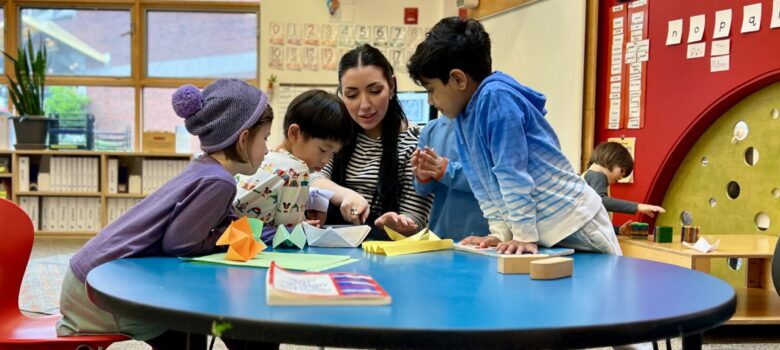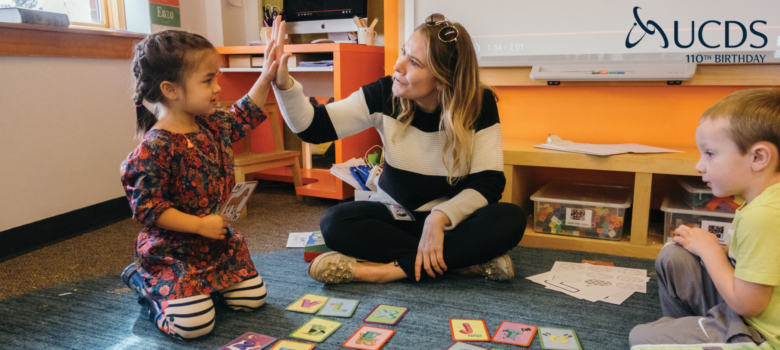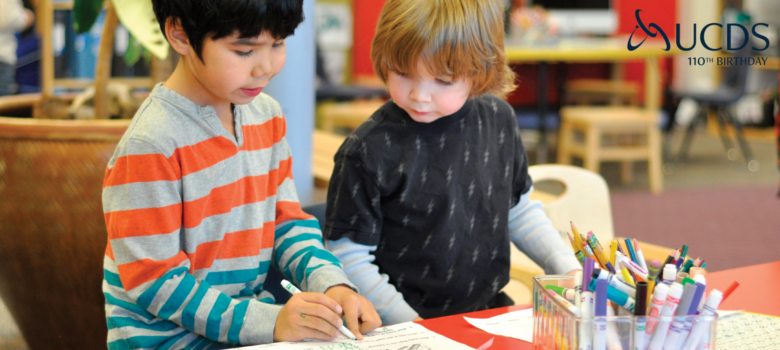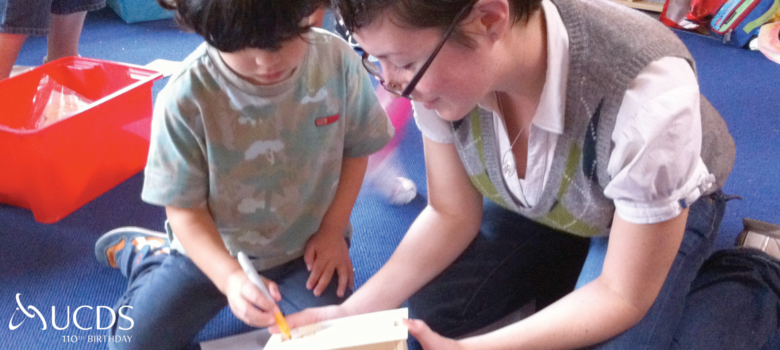3/4s teacher Jenn Drake returns to explain her thoughts on the importance of setting standards for children. She explains how to set students up for success and ways to support them through challenges. -Ed.
– – – –
As a teacher, I find it so important to set high expectations for my students. It sends the message that I believe in their capabilities and trust them to do their best every day. It helps to set up the environment in the beginning of the year by explaining those expectations and including kids in developing their own high standards. For example, this year, we wrote a list of 10 elements of High Quality Work, which includes descriptors like write in pencil, use best handwriting, and complete assignment. Students helped to develop these “rules” and I let them know I expected them to follow through. And in that way, their work is pretty good.
Until it’s not. What happens when a student continually forgets to bring back work or consistently turns in crumpled sheets? The expectations have been made clear. But the students aren’t following through. Here’s the rub for me. I want to give them a second chance. At UCDS, we believe in working toward student independence. Part of that means taking responsibility. So rather than emphasizing the consequence, we expect students to make a reasonable plan for finishing work or revising it to meet the expectations. In a way, it feels like a second chance. We tell them, “Hey, we know you can do this. What’s your plan?” And we expect them to follow through. It’s empowering. It’s encouraging.
And sometimes it’s not enough. That’s when the real consequences come in! How many chances is enough to foster independence? How many chances are too many? What type of consequence is appropriate? These are hard questions to answer. I feel like every child needs something a little different. Some might have so much internal drive that the one time they forget their homework is enough – they won’t be doing that to themselves again! For others, a plan of turning it in the next day leads to another plan for the next day and the next and the next. Every so often, it’s a finish at recess kind of deal. Or, with parent support, a no computer until it’s done deal. But then it feels like a punishment – the one thing we’re trying to avoid. I suppose, just like everything else we do here, it really is kid-dependent. How’s that for solving my own dilemma?
While this post is geared toward parents, I am reading it with my teacher hat on. I’m looking for ways to help a few of my students who frequently forget to return their homework assignments. The points that the author makes about why logical or natural consequences work make so much sense! The consequence should be connected to the “crime,” as she says. When I really stop to think about a natural consequence is for not doing homework, I think it’s that the child doesn’t get continual practice, which may impact his or her performance at school. But what if that’s not the case? What if my school doesn’t give grades for homework? Then what’s the logical consequence? We try to encourage responsibility by having kids write a note that includes a plan for completion. Again, what’s the next step if it’s still not getting done? It feels like the next step is to take something away, but then it’s a punishment. And that’s what we’re trying to steer clear of! I’d love to read more about how to apply this in the classroom.
Jenn Drake, UCDS teacher




